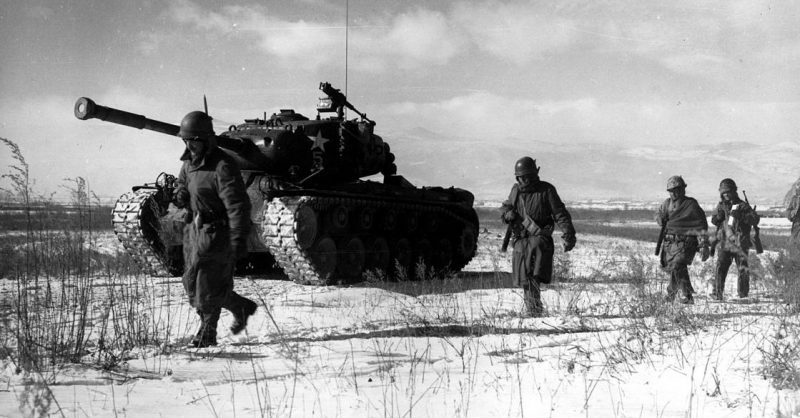The new PBS documentary The Battle of Chosin Reservoir is a powerful examination of an event that almost destroyed the 1st Marine Division and caused America to question its power in the world.
For 17 days two powerful armies, American and Chinese, were locked in combat, sometimes within spitting distance of each other, in bone-chilling temperatures of 30 degrees below zero.
Korean War Veteran Juan Balleza considers himself one of the lucky ones. He came back with all his toes and fingers, avoiding frostbite, but he still carries the memories of that battle with him.
“You change as a person,” said one Chosin veteran, who recalled abusing a group of injured Chinese prisoners with his rifle. “You’re a different kind of person. You become something you never thought possible.”
Balleza, a San Antonio native, one of many veterans interviewed, joined the Marine Corps Reserve at age 17 in 1948. Two years later, he graduated from high school in May. In July his unit was activated, and two months after that, armed with Browning automatic rifle, he was fighting in the streets of Seoul, South Korea’s capital.
Early in November, Balleza’s detachment – the 7th Marine Regiment – was ordered north into the mountains towards the Chinese border. General Douglas MacArthur, the commander of UN forces in Korea, thought the war was all but over. He failed to realize that Chinese communist leader Mao-Zedong, sitting near the border with his army, was luring MacArthur’s forces into a trap to slaughter them.
On the night of November 27, approximately 120,000 Chinese troops descended upon the American forces, who were now outnumbered four to one.
The fighting was brutal, involving close combat and intense violence. Then, as quickly as Chinese troops appeared, they vanished again. UN Forces were eventually pushed back below the 38th parallel, and never tried to forge that far north again.
The defeat was a wake-up call for the United States, historian Bruce Cumings explained. From that event came the national security state, a larger standing army, and more overseas military bases. These fundamental changes and developments can arguably be seen as a direct result of that Chinese intervention in 1950.
